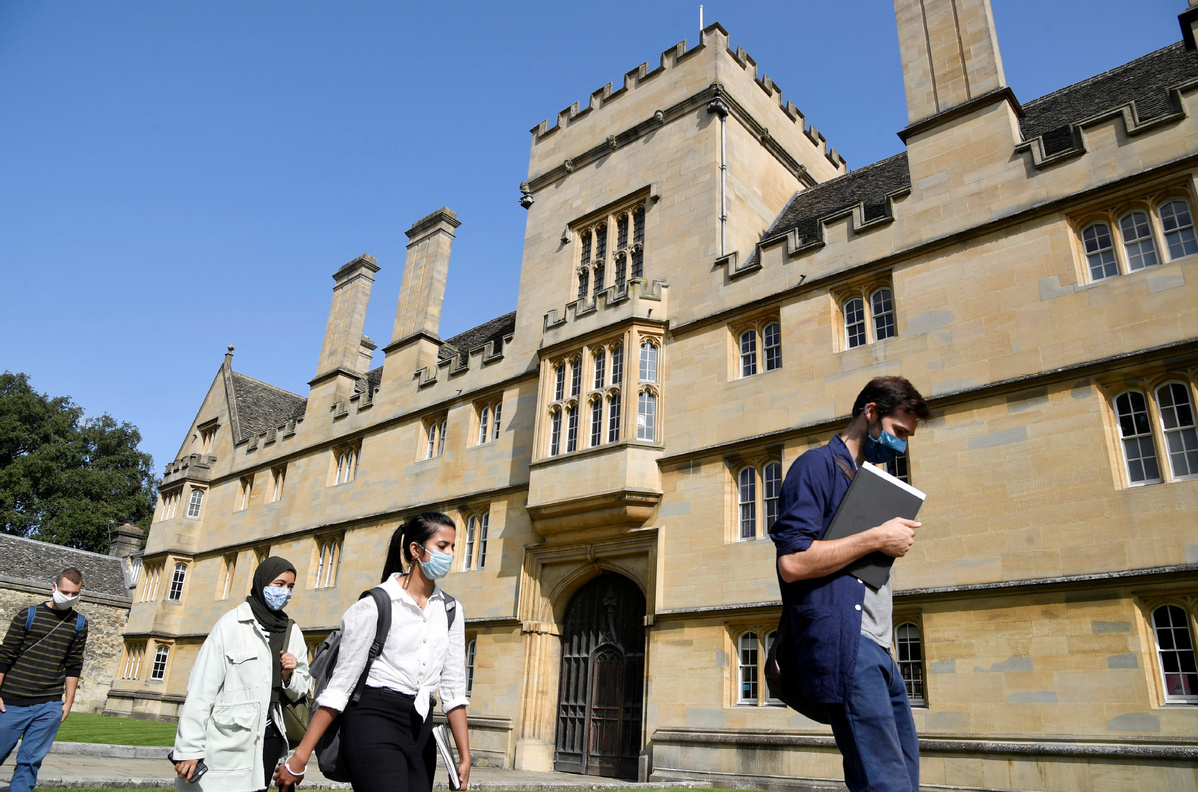University outbreaks cause concern about further spread of coronavirus


COVID-19 outbreaks among students in British universities have raised eyebrows, with medical experts saying that the risk of transmission from the young to the vulnerable is deeply concerning.
Newcastle University confirmed last Thursday that there were 1,003 novel coronavirus cases among students and 12 in staff in the past week.
A total 619 students at Northumbria University tested positive for the virus in the last week, compared with 560 the week before.
This came as Sheffield's two universities last week reported more than 850 confirmed cases of COVID-19, with 474 students being diagnosed at the University of Sheffield between Sept 28 and Oct 4, and 336 cases at the nearby Sheffield Hallam University, including two staff cases, in the same period.
Fan Chung, professor of respiratory medicine at Imperial College London and consultant physician at the Royal Brompton and Harefield NHS Trust, said the increasing rate of COVID-19 cases among students was a concern.
"Although COVID-19 seems to run a more benign course in younger people, there are a few young people who still might need treatment in hospital and there is also the recognition that young people particularly can have prolonged symptoms of fatigue, pain, breathlessness, brain 'fog' and cough that can continue for a long time after they have recovered from the acute phase," Fan said.
He added: "The more worrying thing is that the infection may spread throughout the student population and also to other more vulnerable people that the students may come in contact with, such as their lecturers and teachers or other students."
Ian Jones, a professor of virology at the University of Reading, echoed Fan's view, saying: "It is certainly true that younger individuals do not suffer the same degree of serious illness as older groups. However, vulnerable individuals are still at risk, no matter what the age, and group living should take account of the possibility that some students need shielding."
Karol Sikora, dean of medicine at Buckingham University, adopts a less alarming tone regarding the outbreaks on campuses.
"They are young and have little illness with the infection - many have no symptoms at all. As long as we protect the old and medically vulnerable, we should be fine," Sikora said. "Average age of COVID deaths in the UK is 81-year-old. There are more older people in care homes than in universities, so students tend to remain healthy."
The number of new cases in the past month in the UK has continued to rise, with a 7-day moving average of 14,589 on Oct 12, according to the Worldometer COVID-19 Data.
Epidemiologists say it is not surprising that campuses across the North of England have become a hot spot for new cases.
"Localized outbreaks in universities may have partly resulted from a minority that may not be following the advice of social distancing, hand hygiene and wearing masks as strictly as needed," Fan said.
Jones pointed out that the infections certainly could relate to the density of students in their halls of residence. "There may also be a factor of complacency caused by the fact that young people generally do not get serious infections and so do not feel the same need to take precautions. Inevitably they mingle so transmission occurs.
"This is likely to be a common event throughout the terms that students are resident at university," he added. "Regular testing on campus would be the most sensible way to manage COVID infection in student populations prior to vaccine roll-out."
With Manchester being one of the worst-hit regions in the country, Manchester University, which reported more than 1,000 COVID-19 cases since Sept 27, has decided to suspend face-to-face teaching and close non-essential facilities on campus.
Manchester Metropolitan University has moved undergraduate and postgraduate teaching online until Oct 30, with the exception of a small number of clinical or practice-based courses.
"It is clear that universities have a duty of care to keep students and staff safe. An enforcement of the measures with regard to social distancing and infection control measures and mask-wearing is important, and also access to testing and a system of contact tracing are important additional measures," Fan said. "It is also important to make sure that the students understand the dangers of COVID-19."

































